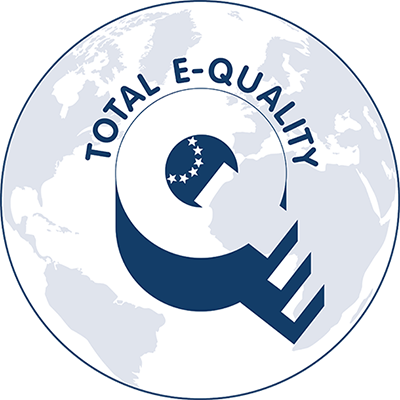Monographs, contributions to edited volumes and conference papers
What are the options for open access publishing?
In addition to publishing in academic journals, other types of publications play a significant role in scholarly communication. These include monographs, contributions to edited volumes, and conference papers. The importance of each type varies by academic discipline. While monographs still play a very important role in the humanities and social sciences, the emphasis in the life sciences is on journal articles. In computer science, conference papers hold particular significance.
In recent years, efforts have been made to adapt the open access journal model to publications in book form.
Below, we outline the open access publishing options that are now available for these formats. One point worth noting is that the right to self-archiving under § 38 (4) of the German Copyright Act (UrhG) does not apply to these types of publications, as they are only published once rather than on a recurring, periodic schedule (e.g. biannually).
Monographs
Monographs are specialist publications on a single topic, generally in book form. Unlike handbooks and contributions to edited volumes, monograph chapters are written by one author or collaboratively by a group of authors.
Gold open access publishing of monographs
Publishing open access via the gold route is far less common for monographs than for journal articles. Authors may pay a book processing charge (BPC) ‒ similar to article processing charges in journals ‒ to publish their work open access. Due to the larger page count, these fees are generally higher for monographs.
Many publishers offer a hybrid variant where books are made available as printed editions as well as in a freely accessible form on a website or in an online repository. Open access publishing of monographs is offered by university presses and, increasingly, also by commercial publishers. The website of the working group of German-language university presses provides information on non-commercial options, while the Directory of Open Access Books (DOAB) offers an overview of open access books and can also be used to identify participating publishers.
Another helpful resource in this context is the AuROA project, which has created a catalogue of services for OA book publications and a contract generator, both of which can be used as guidance by publishers with OA programmes and by authors planning to publish books open access.
Green open access publishing of monographs
Whether a monograph that has already been published in print or electronic format can later be made available as open access via the green route depends on the terms of the author’s contract.
Institutional or subject-specific repositories offer suitable publishing platforms for secondary publication. The terms and conditions of each repository specify whether they accept monographs.
Contributions to edited volumes
Similar to an issue of a scientific journal, the chapters in an edited volume are generally written by different authors who each retain the rights to their individual contributions. The editors then compile these contributions into a single volume. An agreement stipulates the extent to which the publisher or editors are responsible for selecting contributions and clarifying authors’ rights.
Gold open access publishing of edited volume contributions
The decision to publish an edited volume as open access lies with the publisher in consultation with the editors. If an edited volume is not published open access, the only option left to authors is to negotiate the corresponding rights for self-archiving through their author’s contract.
Recommendations for publishing contributions in edited volumes are similar to those for journal articles.
Green open access publishing of edited volume contributions
If no payment is made for the contribution, authors have the right under § 38 UrhG to reproduce, distribute and make their work publicly accessible 12 months after initial publication, unless otherwise agreed upon contractually.
For paid contributions, self-archiving via the green route depends on the terms of the author’s contract. If exclusive rights were not granted during initial publication, authors may disseminate their work elsewhere.
Conference papers
Conference papers may be categorised as proceedings (published before or during a conference) or postceedings (published after a conference). Proceedings are often distributed to attendees and funded through registration fees but may also be sold separately for broader access by libraries or interested professionals.
The question of whether conference papers appear as open access also depends on their content, which can range from presentation slides and posters to abstracts or fully written papers. Sometimes these papers appear as special issues in journals, subject to that journal’s policies.
The decision on whether to publish conference papers open access generally lies with the conference organisers. Parallel publishing is common: alongside print editions, papers may be made freely accessible online or published directly on digital platforms. If conference papers are not initially published OA, authors can often make them available electronically through self-archiving. Due to the wide variety of options and approaches, it is advisable to check publication policies before submitting a paper to determine whether and in what form the paper will be published and whether an OA option is available.
Sources of funding
Several research funding bodies provide financial support for OA publishing of books, edited volumes and conference proceedings but often impose specific requirements, such as using certain licenses. The cOAlition S website provides a useful – though incomplete – overview of research funders. It is also worth consulting the OAPEN website, which lists publishers who comply with the requirements of individual funding agencies.
Institutional publication funds supporting OA monographs are another option, but may still be under development at some institutions. Check with your institution to find out more about available funding opportunities and any associated conditions.
See also
Electronic self-archiving: what are the key issues to consider when self-archiving publications in open access repositories (online archives) or on websites?
Publication fees: what are the different ways of covering publication costs?
Funding: what requirements do funders impose in regard to open access?
Disclaimer
Important note: The information and links provided here do not represent any form of binding legal advice. They are solely intended to provide an initial basis to help get you on the right track. ZB MED – Information Centre for Life Sciences has carefully checked the information included in the list of FAQs. However, we are unable to accept any liability whatsoever for any errors it may contain. Unless indicated otherwise, any statements concerning individual statutory norms or regulations refer to German law (FAQ updated 02/2025).
Contact

Dr. Jasmin Schmitz
Head of Publication Advisory Services
Phone: +49 (0)221 999 892 665
Send mail
Related Links
Directory of Open Access Books
Working Group of University Publishers (German only)
OAPEN: List of compliant book publishers
Fadeeva, Y., & Graf, D. (2023). AuROA service catalog for scientific open access publications. Transparent listing of tasks for book publications. Zenodo.
Annex A: Overview of existing OA book policies of a subset of cOAlition S organisations. In cOAlition S statement on Open Access for academic books of 2 September 2021. Plan S News. (accessed 14/02/2025)





